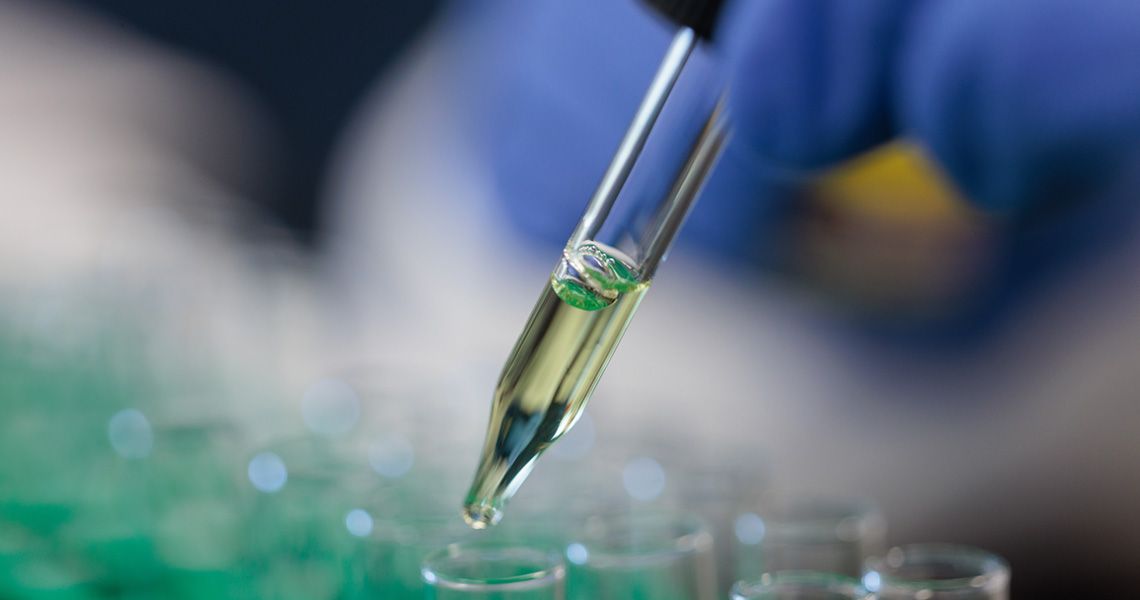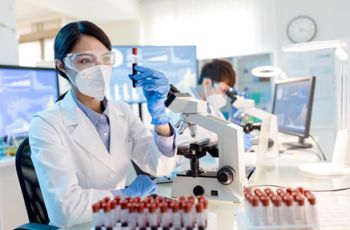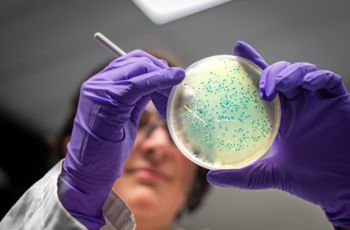The interconnection between health sciences and modern genetic and molecular knowledge has never been more pronounced. The merger of these two disciplines allows for significant advancements in both personalized medicine and preventive health care. Together, they offer patients tailored treatment plans, while providing clinicians with a deeper understanding of individual health risks and potential interventions.
If you’re considering launching or advancing your laboratory science career in these groundbreaking fields, keep reading to learn more about their importance in health care and the available career options.
The role of medical genetics and molecular biology in medicine and health care
Medical genetics and molecular biology are foundational to modern medicine, combining insights into our genetic makeup with advances in molecular-level biology to enhance diagnosis, prevention, and treatment. Medical geneticists focus on how individual genetic variations influence health and disease, creating a bridge between traditional medicine and cutting-edge genetic research.
Meanwhile, molecular biologists examine DNA, RNA, and proteins to understand the biological processes that drive health and disease. Together, these fields enable personalized therapies, genetic testing for hereditary risks, and treatments for a range of conditions from rare disorders to common diseases such as cancer and heart disease. This research continues to make health care approaches more precise, preventive, and tailored to individual needs, improving outcomes for patients worldwide.
Medical genetics and molecular biology career paths
As advancements in genetic research accelerate, there are expanding career opportunities in this field for those interested in understanding human health at the molecular level. Whether you are fascinated by the idea of helping to develop life-saving therapies or using genetics to solve public health issues, there are diverse career settings where you can make a meaningful impact. Laboratory scientists in this field can work in a variety of environments. Let’s explore some of the different options for those pursuing a career in medical genetics and molecular biology.
1. Diagnostic molecular laboratories
Diagnostic molecular laboratories assist with disease diagnosis by analyzing DNA to identify genetic disorders and assess health risks.
In these labs, you’ll work with patient samples, conduct genetic tests, and support clinical diagnoses through the use of molecular-based techniques. For example, you may help identify genetic mutations that could indicate a higher risk of cancer or other inherited conditions.
2. Public health laboratories
Public health laboratories focus on protecting and improving health outcomes across an entire population. These labs often conduct genetic testing to track infectious diseases and understand genetic predispositions within communities.
In a public health lab, you might conduct genetic analyses to monitor disease outbreaks or study the prevalence of genetic conditions. You may also be involved in large-scale health initiatives, such as screening programs for newborns to detect genetic disorders.
3. Research institutions
Research institutions, such as universities and private research organizations, are hubs for scientific discovery. Here, laboratory scientists study everything from fundamental genetic processes to the development of new therapies and diagnostics.
As a research scientist, you’ll design and conduct experiments, analyze data, and publish findings to share knowledge with the broader scientific community. You may also work on groundbreaking studies that lay the foundation for future discoveries and medical advances. You can read some of the recent discoveries and advances accomplished in this field by the latest Nobel Prize winners in Physiology or Medicine:
- 2023 Nobel Prize Winners in Physiology or Medicine
- 2024 Nobel Prize Winners in Physiology or Medicine
4. Law enforcement agencies
The law enforcement field employs laboratory professionals with experience in molecular biology and genetic diagnostic techniques to work in forensic labs to analyze DNA and other genetic material collected from crime scenes.
In this role, you’ll use advanced molecular biology techniques to identify genetic markers or match DNA samples to suspects, helping to establish connections between evidence and potential perpetrators. You may also be called to testify in court to explain your findings.
5. Reference laboratories
Reference laboratories provide genetic testing services to health care providers, often handling a high volume of tests for hospitals and clinics. These labs perform tests that require high precision and specialized equipment, such as genetic testing, molecular diagnostics, or rare disease screening.
Working in a reference lab, you’ll conduct routine and specialized genetic tests to verify diagnostic results, ensuring that health care providers have accurate information to guide patient care. You may also collaborate with health care teams to interpret complex genetic results, helping translate molecular data into practical clinical insights.
6. Biotechnology firms
Biotechnology companies focus on creating innovative products and technologies, such as gene therapies, genetic tests, and other tools used in genetic and molecular biology. By harnessing biological processes and genetic information, they work to create targeted therapies, diagnostic tests, and vaccines to address specific medical needs.
At a biotech firm, you might work in research and development, product testing, or quality control, contributing to projects that aim to solve health care challenges through genetic innovation. Your research could be foundational for creating targeted treatments for genetic disorders, or precision medicines tailored to individual genetic profiles.
7. Pharmaceutical companies
Pharmaceutical companies develop drugs and therapies, and many focus on treatments tailored to a patient’s genetic makeup. This area, known as pharmacogenomics, combines pharmacology and genetics to create effective and personalized medicines.
In a pharmaceutical company, you’ll work on drug development, testing, and research, focusing on therapies that can be personalized to genetic profiles. This work is vital for ensuring drugs work effectively and safely for specific genetic populations.
8. Federal government agencies
Given the growing demand for experts in genetics, genomics, and biotechnology, there are numerous opportunities at various federal government agencies, especially those that focus on health care, research, biotechnology, and public safety, such as the National Institutes of Health (NIH), the National Cancer Institute (NCI), and the Central Intelligence Agency (CIA).
In a federal government agency, you’ll conduct biomedical and genetic research to understand human diseases, genomic variations, and their impact on health and populations.
9. Federal laboratories
Federal laboratories, such as the National Human Genome Research Institute (NHGRI), Lawrence Livermore National Laboratories (LLNL), and the Battelle National Biodefence Institute, conduct cutting-edge research in genetics and molecular biology.
In a federal laboratory, you can contribute to biosecurity, studying genomics and bioinformatics related to pathogens and environmental health. You may also work on large-scale projects such as the Human Genome Project, or other initiatives dedicated to improving health care across the general population.
Medical genetics and molecular biology career outlook
The current career outlook for certified laboratory specialists in these settings is promising due to the high demand for trained individuals who can perform high-complexity, diagnostic laboratory tests. The average salary is $69,000-$102,500 annually across the United States.1
Earnings will vary based on prior molecular experience, geographic location, and the type of industry or institution.
Impact the future of medicine, health care, and public health
As you can see, the field of medical genetics and molecular biology is rich with opportunities for those passionate about science, medicine, and discovery. With career paths ranging from patient-focused roles in diagnostic labs to innovative research positions in biotech and pharmaceutical companies or federal government positions, you could make a direct difference in the lives of patients, public health, national security, and the field as a whole.
If you’re interested in pursuing a career in medical genetics and molecular biology, learn more about the George Washington University School of Medicine and Health Sciences accredited and nationally ranked programs.2 Students in our programs gain hands-on clinical experience under the guidance of expert faculty and are eligible to sit for the ASCP Molecular Biology (MB) Board of Certification Exam.3
Discover the other benefits by exploring the following programs:
- BSHS in Medical Genetics and Molecular Biology
- MSHS in Molecular Diagnostic Science
- Post-Baccalaureate Certificate in Medical Genetics and Molecular Biology
1 https://www.ziprecruiter.com/Salaries/Molecular-Diagnostics-Salary
2 The U.S. News & World Report – 2024 Rankings.
3 Since each state may have different requirements for licensure, each student is encouraged to contact their state’s regulating agency and review these requirements prior to beginning any degree program.



